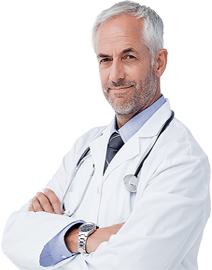Welcome to Doctor Direct.
It’s your monthly insider access to the top health professionals on the cutting edge of their fields.
There’s no runaround… no paperwork… no prescriptions… no co-pays… Just the information you need
to take control of your health.
Are you worried about your health? Ask our doctors about your problem. Send your question to: [email protected].
The answer may appear in next month’s Doctor Direct.
*We value your privacy. Names are changed on all published questions.
How Can I Stop Getting Colds So Often?
Q: I work in retail, so I’m exposed to the public a lot. I think that’s the reason I get colds often. And this winter I was hit with the flu. Can you recommend supplements or other things that can build up my immune system so I don’t get sick as often?
A: Hi Pat,
There’s been an explosion of research in the last decade linking the health of the gut to the health of just about every system in the body including the immune system. So I’d start with gut health.
Take a probiotic supplement every day. The benefits have been shown in a number of diseases, and some strains have been shown to be anti-inflammatory.
The noted integrative neurologist Dr. David Perlmutter, M.D., who has been studying this stuff for a while, recommends that your probiotic supplement contain five core species: lactobaccilus acidophilus, lactobacillus brevis, lactobaccilus plantarum, bifidobacterium lactis, and bifidobacterium longum.
In addition to probiotics, there are a bunch of things I personally keep in my cabinet for “getting sick” season. One is the over-the-counter elderberry extract Sambucol, which I take at the first sign of a cold or flu.
It’s very high in antioxidants and anti-inflammatories and has some good published research supporting its use. (Editor’s note: Sambucol is widely available at drug stores and online.)
You should also take a high quality multi-vitamin (I like the Rainbow Light Vibrance Line of multiples, which is widely available). That’ll make sure you’re getting any nutrients that might be missing in your diet. Remember, micronutrient deficiencies can weaken your immune system.
Beyond that, I’d recommend fish oil (2–3 grams a day), garlic, zinc (30 mg), and vitamin C (500–1,000 mg). I’m also a fan of the herb ashwagandha, which has a long history of being used as a tonic, and can help strengthen immunity and resilience.
And olive leaf complex has been shown in a wide range of studies to be antimicrobial and antiviral. (I like Barlean’s Olive Leaf Complex). And the predominant fat in coconut oil is lauric acid, which is known to also be antimicrobial and antiviral.
But none of this will make much difference if you’re eating a crummy diet. Make sure to stack the dietary deck with high-antioxidant fruits and vegetables, grass-fed beef, wild caught salmon, and lots of nuts and berries. And drink green tea every day.
There are more immune system boosters in a diet including these things than you could possibly even count.
Best,
Dr. Jonny Bowden
Is Low Thyroid Causing My Depression?
Q: I’m a 59-year-old woman who has been dealing with persistent depression for the last few years. My doctor prescribed an antidepressant, which didn’t help. Then he switched me to another one, which also didn’t help, but caused me to put on weight. I’ve been reading that thyroid problems can cause depression. I’m wondering if that’s my problem. What tests do I need to check my thyroid?
A: Dear Hazel,
What a great question. First, yes… it is so vitally important to truly identify and treat the contributing factors of depression. Certainly an under-functioning thyroid can be one of them.
Here are the tests that I run when I suspect this:
- Total T4
- Free T4
- Free T3
- TSH
- Thyroid Antibodies
- Ferritin
- Vitamin D
Ask your doctor to give you these tests. There’s a chance your thyroid may be the root of your problem.
Take care,
Dr. Holly Lucille
My Dad No Longer Remembers His Family. What Can I Do?
Q: How should I react when my dad, who has Alzheimer’s, forgets who some of his family members are? How can I make it easier on him and the rest of the family? Is there anything I can do to preserve what little memory he has left?
A: Hi Paula,
Alzheimer’s patients can be in different stages of the disease when they lose the ability to recognize family members. Forgetting the names of grandchildren happens quite early in the disease. Failing to recognize a spouse often occurs late. Forgetting the rest of the clan falls somewhere in between.
If your dad is still in the early stages, remembering familiar family members, but losing track of more distant ones, there are many things that can be helpful.
If you have the energy for a full approach, I recommend the book The End of Alzheimer’s by Dr. Dale Bredesen. It will give you an idea of just how complete an overhaul is necessary to stem the tide of cognitive decline. It takes a lot of work, but it can reap huge rewards.
And I hope that you and others genetically related to your father will consider early evaluation. If you have the ApoE4 gene, your own risk is doubled and it is far easier to prevent the disease than to reverse it.
If your father is further along in the disease process, there are still some considerations that can be helpful.
- Prescription medications such as Aricept might offer a transient improvement in brain function, though not alter the overall course of the disease.
- Supplements, on the other hand, might offer longer-term improvement. They work well together, so include as many as are practical:
Vitamin B1, 10–50 mg (higher doses for heavier drinkers, 10 mg for all).
Magnesium-L-threonate, 2 grams daily.
Pregnenolone, 10–25 mg once or twice daily can boost energy both physical and mental.
Overall, the greatest benefit to be had is from the introduction of ketones to his brain. Ketones are made in the liver from stored or dietary fat. They are molecules too big to be useful themselves for the brain, but very helpful if transformed by the liver into smaller ketones.
Your father can make ketones for his brain by fasting (not recommended for someone who doesn’t understand why) or by taking supplemental ketones themselves. But currently at $30 a dose, this is not a sustainable choice.
The best method for increasing brain ketones is to work a bit on meal spacing, aiming for four to five hours between daytime meals and 12–13 hours as an overnight break.
Snacks should be minimized if possible. At the end of each meal, or within an hour after the meal, offer your father a beverage with a medium-chain triglyceride (a medium-sized fat) that will rev up the liver’s productions of ketones. There are several options here:
- Coconut oil is a combination of several MCT’s, has a strong coconut taste, and in high doses CAN cause diarrhea. Stirring 2–3 tablespoons into a hot beverage works for most people. Reduce the dosage if he has digestive troubles.
- MCT oil or Brain Octane Oil (made by Bulletproof Executive) are more refined and thus lower doses (1–2 tablespoons) are effective and usually less stimulating to the gut.
I also personally like MCT oil adherent to fiber (Phat Fibre and others) because they are gentler on the gut, give less of a peak of ketones but are better at creating a prolonged level. They are also helpful in reducing the desire to snack.
My strongest recommendation, however, is to honor your father’s experience through your kindness to him (asking if an unfamiliar relative reminds him of any faces from his childhood, perhaps) and through your attention to protecting the health of your own brain. He would want that for you.
Hope this helps,
Dr. Deborah Gordon
THE DOCTORS
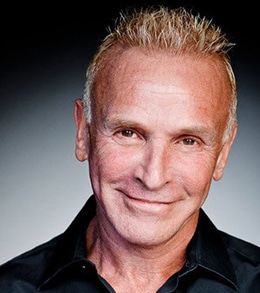
Dr. Jonny Bowden
Dr. Jonny Bowden is a nationally known board-certified nutritionist and expert on diet and weight loss. He has appeared on The Dr. Oz Show, Fox News, CNN, MSNBC, ABC, NBC, and CBS and has written or contributed to articles in The New York Times, Forbes, The Daily Beast, The Huffington Post, Vanity Fair, Prevention, and Men’s Health.
Dr. Bowden is a consultant at Cenegenics Medical Institute and the best-selling author of 15 books, including Living Low Carb, The 150 Healthiest Foods on Earth, and (with cardiologist Dr. Stephen Sinatra), the controversial best-seller, The Great Cholesterol Myth.
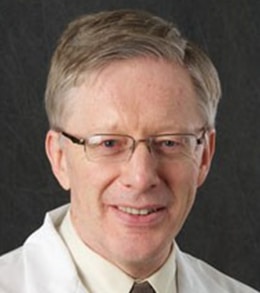
Dr. Guido Tricot, M.D.
Dr. Guido Tricot, M.D., is one of the nation’s top cancer researchers. He is a hematologist and Professor Emeritus of Internal Medicine at the University of Iowa. His landmark clinical studies on blood cancer have found new ways to attack myeloma cells and the microenvironment that supports them.
Over the last 15 years, the median survival for patients diagnosed with myeloma has, in large part due to this work, increased from 2 ½ years to more than 10 years. The complete remission rate has increased from 5% to 80%. For more information about Dr. Tricot, visit his page on the University of Iowa website.
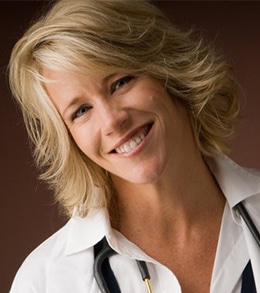
Dr. Holly Lucille, N.D.
Dr. Holly Lucille, N.D., entered the medical world driven by the simple desire to help bring people to a better place of wellness. But she quickly became disillusioned with the reductionist approach of the conventional medical world that sought to address any and all illness with a pill. Desiring a more personalized and supportive approach, Dr. Lucille found her calling in the naturopathic profession. She has quickly become one of its leading experts, educators, and advocates. Alongside her private practice in Los Angeles, Dr. Lucille is the medical advisor at Natural Partners Inc. and the vice chair of the Institute for Natural Medicine. Dr. Lucille has appeared on syndicated TV programs, including The Dr. Oz show and The Doctors, and on national networks. Dr. Lucille has written several books on integrative health and hosts her own podcast, Mindful Medicine.
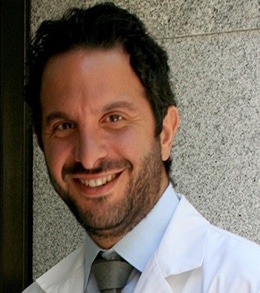
Dr. Robert Segal, M.D.
Dr. Robert Segal, M.D., is one of the nation’s top cardiologists. He is an attending physician at NYU Medical Center and North-Shore Lenox Hill Hospital in New York. And he is founder of two medical practices, Manhattan Cardiology and Medical Offices of Manhattan, and co-founder of LabFinder.com. You may have seen him discuss heart health on Good Morning America or ABC News. Dr. Segal is a passionate and visionary voice in cardiac care.
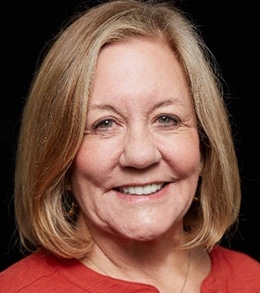
Dr. Patricia Salber, M.D., MBA
Dr. Patricia Salber, M.D., MBA, is a board certified internist and emergency physician. She is an expert in healthcare technology who helps medical innovators develop software to support clinical trials. She is a pioneer in the use of wearable devices to improve health. Dr. Salber has been published widely in peer-reviewed journals.
She has appeared on CNN, Huffington Post, and Fox Business News, and she produces the popular health website, The Doctor Weighs In. Her latest book is Connected Health.
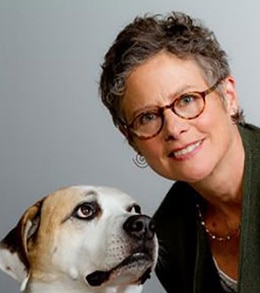
Dr. Deborah Gordon, M.D.
Dr. Deborah Gordon, M.D., is an integrative family physician based in Ashland, Ore. She was educated at UC Berkeley and graduated from the University of California, San Francisco School of Medicine.
Dr. Gordon’s natural health solutions have helped thousands of patients overcome chronic conditions after conventional medicine failed them. She believes pharmaceutical drugs should be a last rather than a first resort. She focuses on holistic lifestyle and nutritional therapies that help you age, feel, and look better.
